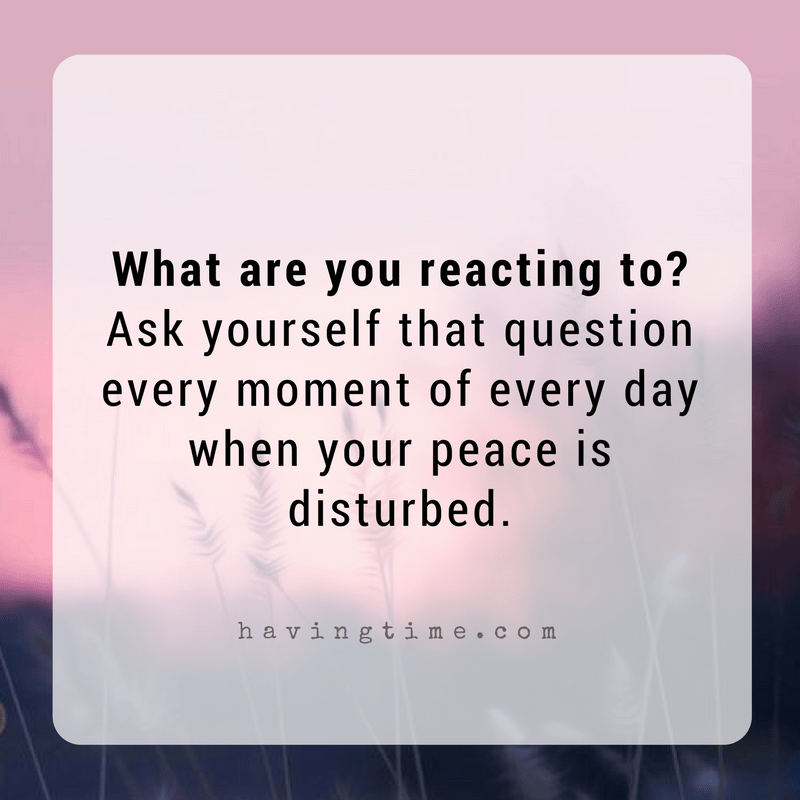
Emotional resilience refers to one’s ability to adapt to stressful situations or crises.More resilient people are able to “roll with the punches” and adapt to adversity without lasting difficulties; less resilient people have a harder time with stress and life changes, both major and minor.
Life never quite turns out the way you think it will, does it?
The truth of this statement was brought into sharp relief for me just a couple of weeks ago.
Out of the blue, and within hours of each other, two of my closest and most favorite family members were hit with their separate crises. One was physical, one was emotional, and both were potentially life-changing.
For me, it was like being hit by a tsunami and then being struck by lightning. I didn’t see either of these things coming, and the catastrophic consequences for both my family and myself hit me hard. As the initial numb shock and disbelief wore off, I found myself racked by deep and heart-wrenching sobs as I fearfully contemplated a future that looked vastly different from the one I had anticipated.
Ok, so let’s just hit the pause button there for a second as that’s what I made myself do in real life. Despite all my training and knowledge, the temptation to collapse down a rabbit hole of panic was strong. However, I knew I had a choice. If I wanted to be able to support my loved ones effectively through the issues they were dealing with, I needed to get myself sorted pretty quickly.
And that’s where emotional resilience kicks in.
Emotional resilience is that indefatigable quality that allows us to adapt to challenging, stressful or unforeseen circumstances and bounce back, rather than fall apart. It’s what enables some people to persevere in the face of significant setbacks and roll with the punches, while others fall at the first hurdle. Think of it as both a preventative and protective mental armor.
5 Effective Ways to Boost Your Emotional Resilience
The best news is that it is never too late to learn and improve the skills that will help your emotional resilience develop. Here are some tips to get you started:
1. Never be afraid of the darker side of life
Sometimes, life can be messy and complicated and stressful and problematic and hard. Fact. Take the time to acknowledge how you feel, unapologetically and without judging yourself.
However, remember that painful emotions are often signposts to the things we care about, and can paradoxically lead to positive change and growth. Acquiring emotional resilience means slowly changing our perception of what ‘negative’ emotions signify so that we begin to see a setback as something to be overcome rather than an insurmountable threat.
2. Know your strengths
Build up confidence in your ability to cope during challenging times by getting to grips with your unique character strengths, such as good judgment, creativity or social intelligence. There are lots of ways you can go about this from reflecting on it yourself, to asking those who know you best, to taking a free online survey (I highly recommend VIA character strengths).
Whenever life doesn’t go to plan, considering how your strengths can help should be your first port of call. You’ll immediately feel more competent, more self-reliant and more assured that you have what it takes to get you through this temporary rough patch.
3. Pay attention to what you pay attention to
For survival purposes, our brains are wired to scan the world for potential threats. However, neuroplasticity – the brain’s ability to form new neural connections – means we can start re-wiring our thinking to find the positive routinely.

Regularly practicing mindfulness or meditation is an excellent way to do this, as it helps ground you in the present rather than encouraging your imagination to run away with you and fill an unknown future with the worst possible outcome. If they aren’t your thing, try writing a Gratitude List every night before you go to bed, detailing three things you have been thankful for during the day.
4. Opt for Optimism
In this context, optimism means seeing the potential for positive change, which requires a certain degree of flexibility in your thinking. One door may well be closing for you or a loved one, but is there at least a window that you might be able to squeeze through for now?

Thinking this way can take patience and effort, mainly when you are consumed by a storm of emotions. A good trick here is to try and distance yourself from the issue a little. Imagine a third party, someone you respect and admire, looking at your situation. What would they do? How would they act? What opportunity for change might they see?
5. Reach out to others
We are social creatures, and a sense of belonging, acceptance, and community is incredibly important to our understanding of well-being. In fact, research has shown that hills we need to climb look 20% less steep when standing next to a friend as opposed to standing alone. In other words, our brain’s perception of the world changes by including others.
Asking for help isn’t a weakness, it builds emotional resilience. When we are stressed, adrenaline is released into your body but so is oxytocin, the neuro-hormone commonly known as the cuddle drug because it’s released when you hug someone. Reaching out to others is your body’s built-in response mechanism for stress resilience, a fact that never ceases to amaze me!
These five steps immeasurably helped me regain my emotional equilibrium during my recent tough time. I was able to change what I could, accept what I couldn’t, bounce back and be fully present and supportive for my loved ones.
I know they can do the same for you.
📌 For more information, you can download your Emotional Resilience Toolkit developed by The Mental Health Foundation.


